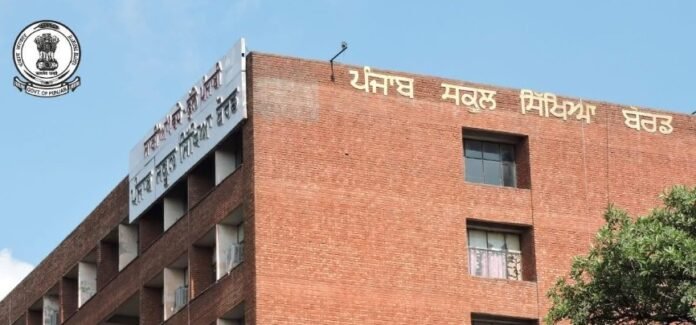In a move poised to reshape school education across Punjab, the Punjab School Education Board (PSEB) has officially released its revised syllabus structure for Classes 1 to 12 for the academic session 2025–26. The updated curriculum, made public on the Board’s official website, reflects a major shift in pedagogical focus, moving towards competency-based learning, critical thinking, and alignment with the National Education Policy (NEP) 2020.
This syllabus revamp marks one of the most comprehensive updates introduced in the state’s education system in recent years. The revised framework integrates key recommendations of the NEP, including early foundational literacy and numeracy, experiential learning, flexible subject combinations, and the introduction of 21st-century skills across disciplines.
“The new syllabus is a progressive step that reflects our commitment to preparing Punjab’s students for a global future. It not only realigns academic priorities but also reimagines how our children learn and apply knowledge,” said Dr. Satbir Bedi, Chairperson of the PSEB, during a media interaction in Mohali.
One of the key highlights of the revised curriculum is the emphasis on mother tongue-based instruction in primary classes, coupled with the gradual introduction of English and Hindi to ensure multilingual fluency. At the secondary level, the curriculum offers greater flexibility, allowing students to choose from a wider array of elective subjects, including Artificial Intelligence, Environmental Studies, Financial Literacy, and Entrepreneurship.
In Science and Mathematics, PSEB has embraced an activity-based learning model, with textbooks redesigned to include real-life applications, lab simulations, and project-based assessments. Teachers will undergo specialised training through state-sponsored workshops to adapt to these new methods and integrate technology into classrooms effectively.
For the Humanities and Social Science streams, the syllabus now incorporates a deeper focus on local history, civic duties, constitutional values, and gender sensitivity, helping students build contextual understanding of their surroundings. The board has also worked closely with academic advisors and educationists to eliminate outdated content and introduce more inclusive, balanced narratives.
“We’ve included modules on climate change, sustainable living, and mental health awareness from Class 6 onwards. It’s essential that today’s learners are not only book-smart but emotionally and environmentally conscious,” said Ritu Kaur, a curriculum advisor who participated in the syllabus development process.
Another notable change is the introduction of formative assessments over high-stakes summative exams. Under the new policy, periodic internal evaluations will carry more weightage, enabling teachers to track student progress holistically rather than relying solely on year-end exams. This move is expected to reduce exam pressure and encourage continuous learning.
Private and government schools affiliated with PSEB have been instructed to begin implementation from the April 2025 session, with printed textbooks being made available by February. Digital versions, along with teacher handbooks and training videos, will also be provided on the state’s official education portals to facilitate a seamless transition.
While many educators have welcomed the syllabus overhaul as a step toward modernising Punjab’s education system, some stakeholders have raised concerns over infrastructure gaps, especially in rural schools. “The content is world-class, but we must also ensure that our teachers have the resources and training needed to deliver it effectively,” said Harish Khanna, principal of a government school in Tarn Taran.
In response, the Punjab Education Department has announced a ₹120 crore package for capacity building, digital infrastructure upgrades, and resource allocation to underfunded schools. This includes plans for smart classrooms, high-speed internet connectivity, and tablets for teachers in backward regions.
As Punjab prepares to launch the 2025–26 academic year under a revitalised curriculum, students, teachers, and parents alike are looking forward to a system that not only educates but empowers young minds to thrive in a rapidly changing world.
#PSEB2025Syllabus #PunjabEducation #NEP2020 #CurriculumReform #ActivityBasedLearning #SchoolEducationIndia #DigitalClassroomsPunjab #CompetencyBasedEducation #EducationNews #PSEBUpdates
This is an auto web-generated news web story.





